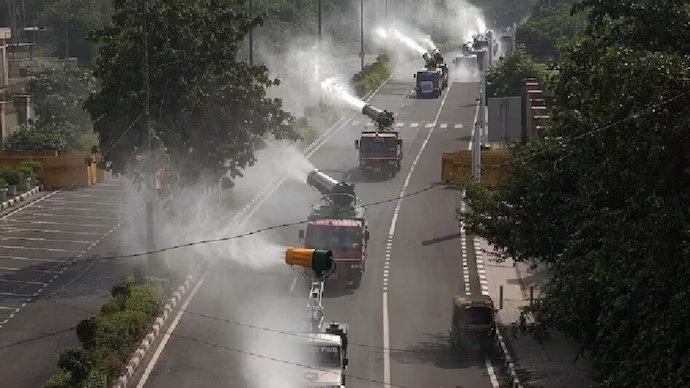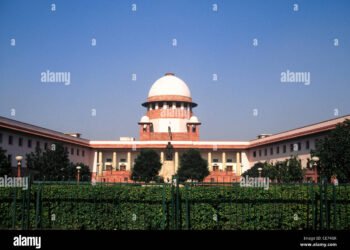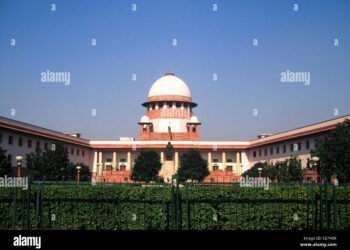The central air quality panel was criticized by the Supreme Court on Friday for failing to act on local officers amidst an increase in crop burning in north Indian states, resulting in air pollution in Delhi. The occurrence happens as Delhi saw a notable decrease in air quality this week.
Supreme Court addresses the rise in stubble burning incidents near Delhi
The court criticized the absence of any committee to address the problem of stubble burning in the Commission for Air Quality Management (CAQM). Every year we witness the burning of stubble. The CAQM Act has been completely disregarded. Have committees been formed? Kindly demonstrate one action that has been performed. Which guidelines have you followed according to the law? You are passive observers. The court accused you of doing nothing.
The chairperson of the air quality panel stated that three subcommittees were conducting a quarterly meeting each.
Also read: Supreme Court grants bail to former TN minister V Senthil Balaji
The CAQM Act establishes a commission to improve coordination, research, identification, and resolution of air pollution issues in Delhi-NCR and neighboring areas.
The bench of two judges stated that it was important to ensure the implementation of equipment that offers an alternative to stubble burning at the grassroots level. The court observed a lack of issued directions under the Act and inaction against violations.
“We wonder how they are performing those tasks by meeting only once in three months,” the top court said.
The amicus curiae, a senior lawyer aiding the court, mentioned that farmers were offered thousands of crores to purchase equipment in order to stop crop burning. “In 2017, we believed it would bring an end, but it hasn’t, prompting the creation of the CAQM. The advocate insisted that a certain officer must be accountable for the situation.
Says CAQM has powers to direct the closure of polluting units
The CAQM was granted extensive powers by the Supreme Court, which included the authority to order the shutdown of polluting factories. The highest court requested the committee to provide information on the meetings conducted and choices made.
“Though the commission has taken certain steps, it needs to be more active, and it must ensure that its efforts and directions actually translate into reducing the problem of pollution,” the court said.














